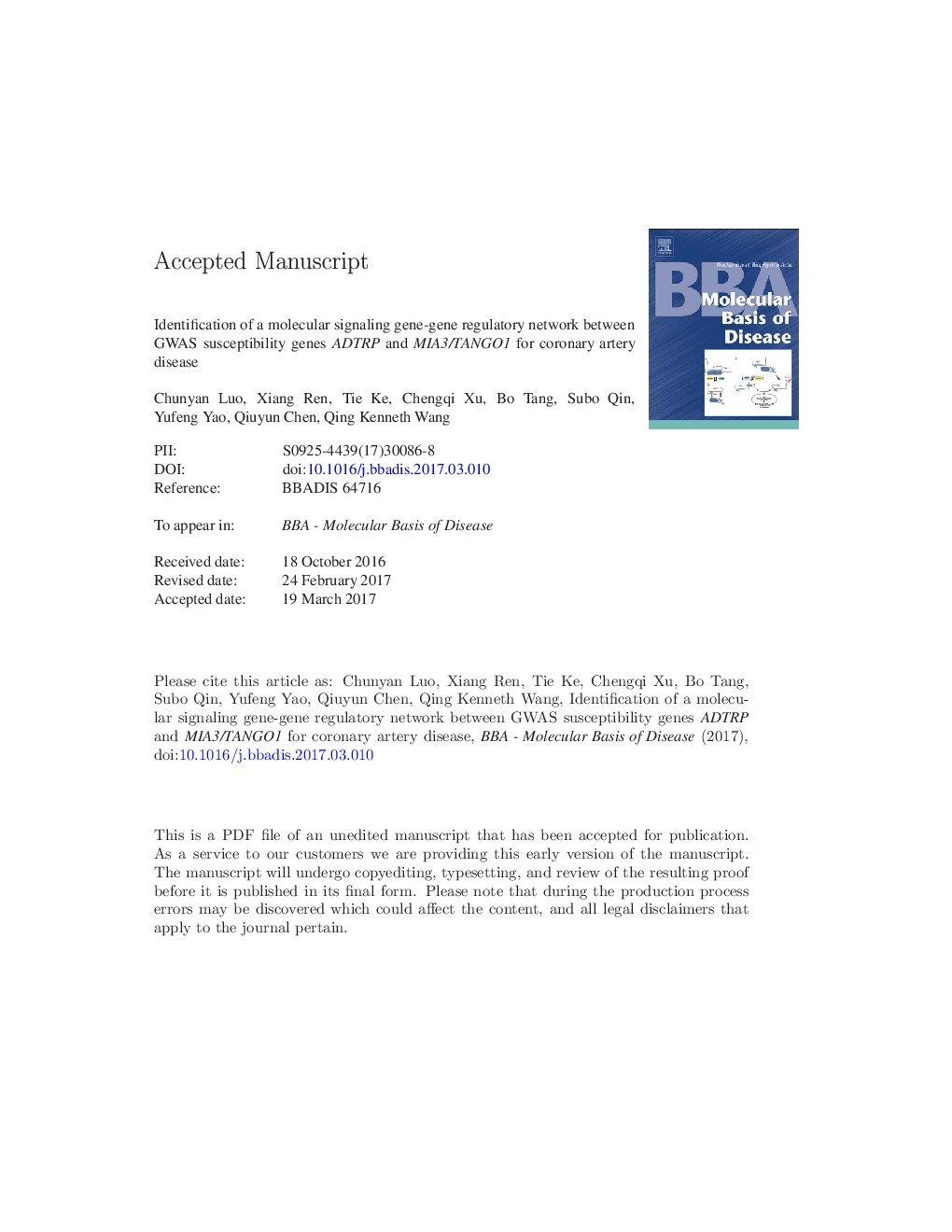| Article ID | Journal | Published Year | Pages | File Type |
|---|---|---|---|---|
| 5501063 | Biochimica et Biophysica Acta (BBA) - Molecular Basis of Disease | 2017 | 57 Pages |
Abstract
Coronary artery disease (CAD) is the leading cause of death worldwide. GWAS have identified >Â 50 genomic loci for CAD, including ADTRP and MIA3/TANGO1. However, it is important to determine whether the GWAS genes form a molecular network. In this study, we have uncovered a novel molecular network between ADTRP and MIA3/TANGO1 for the pathogenesis of CAD. We showed that knockdown of ADTRP expression markedly down-regulated expression of MIA3/TANGO1. Mechanistically, ADTRP positively regulates expression of PIK3R3 encoding the regulatory subunit 3 of PI3K, which leads to activation of AKT, resulting in up-regulation of MIA3/TANGO1. Both ADTRP and MIA3/TANGO1 are involved in endothelial cell (EC) functions relevant to atherosclerosis. Knockdown of ADTRP expression by siRNA promoted oxidized-LDL-mediated monocyte adhesion to ECs and transendothelial migration of monocytes, inhibited EC proliferation and migration, and increased apoptosis, which was reversed by expression of constitutively active AKT1 and MIA3/TANGO1 overexpression, while the over-expression of ADTRP in ECs blunted these processes. Knockdown of MIA3/TANGO1 expression also promoted monocyte adhesion to ECs and transendothelial migration of monocytes, and vice versa for overexpression of MIA3/TANGO1. We found that ADTRP negatively regulates the levels of collagen VII and ApoB in HepG2 and endothelial cells, which are downstream regulatory targets of MIA3/TANGOI. In conclusion, we have uncovered a novel molecular signaling pathway for the pathogenesis of CAD, which involves a novel gene-gene regulatory network. We show that ADTRP positively regulates PIK3R3 expression, which leads to activation of AKT and up-regulation of MIA3/TANGO1, thereby regulating endothelial cell functions directly relevant to atherosclerosis.
Related Topics
Life Sciences
Biochemistry, Genetics and Molecular Biology
Ageing
Authors
Chunyan Luo, Fan Wang, Xiang Ren, Tie Ke, Chengqi Xu, Bo Tang, Subo Qin, Yufeng Yao, Qiuyun Chen, Qing Kenneth Wang,
